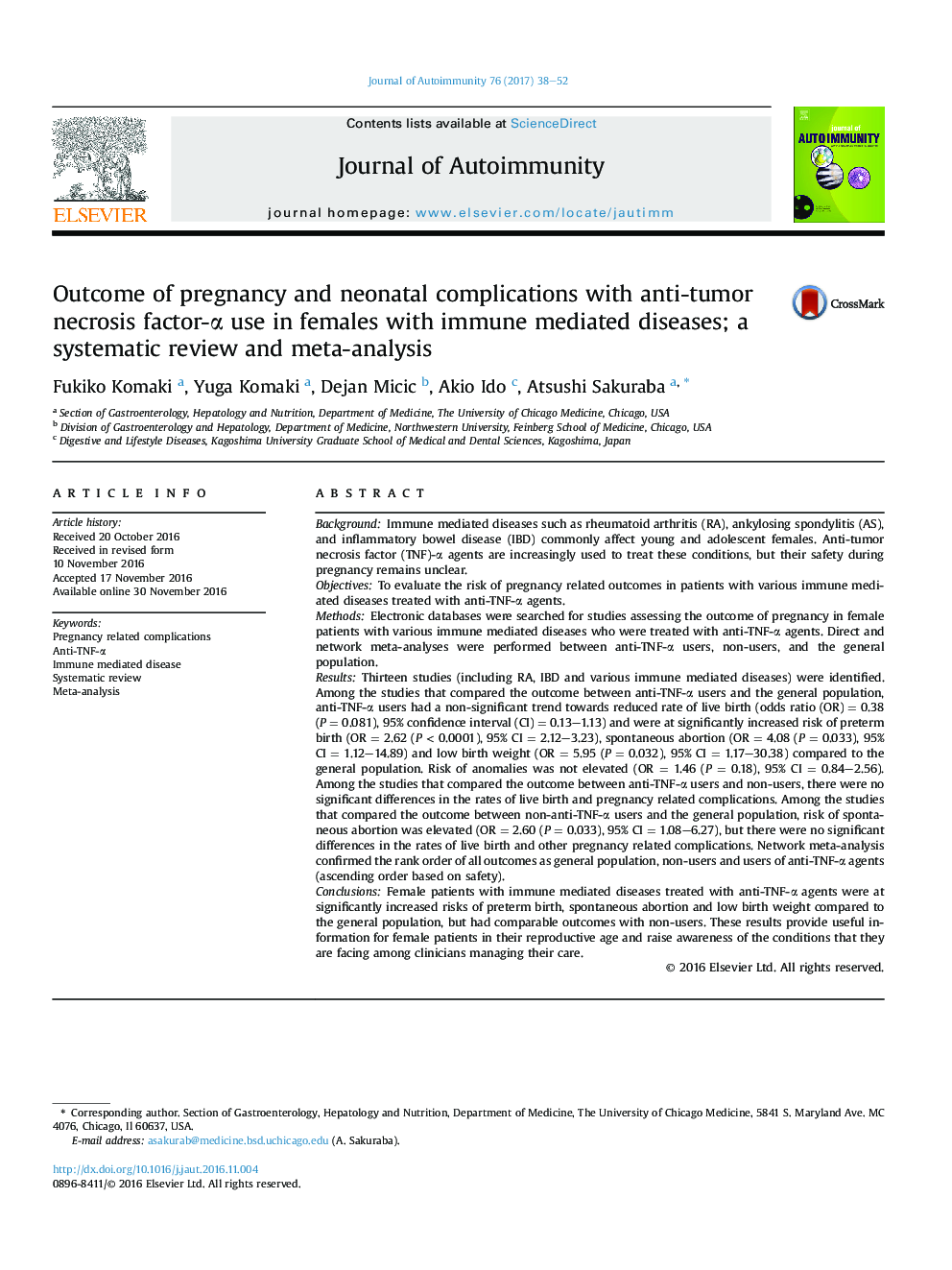| Article ID | Journal | Published Year | Pages | File Type |
|---|---|---|---|---|
| 5667931 | Journal of Autoimmunity | 2017 | 15 Pages |
â¢Anti-TNF-α agents are increasingly used to treat immune mediated diseases, but their safety during pregnancy remains unclear.â¢Anti-TNF treated patients were at risk for preterm birth, abortion and low birth weight compared to general population.â¢The risks were comparable among female patients with immune mediated diseases treated with anti-TNF-α agents or not.â¢These results provide useful information for female patients in their reproductive age and clinicians managing their care.
BackgroundImmune mediated diseases such as rheumatoid arthritis (RA), ankylosing spondylitis (AS), and inflammatory bowel disease (IBD) commonly affect young and adolescent females. Anti-tumor necrosis factor (TNF)-α agents are increasingly used to treat these conditions, but their safety during pregnancy remains unclear.ObjectivesTo evaluate the risk of pregnancy related outcomes in patients with various immune mediated diseases treated with anti-TNF-α agents.MethodsElectronic databases were searched for studies assessing the outcome of pregnancy in female patients with various immune mediated diseases who were treated with anti-TNF-α agents. Direct and network meta-analyses were performed between anti-TNF-α users, non-users, and the general population.ResultsThirteen studies (including RA, IBD and various immune mediated diseases) were identified. Among the studies that compared the outcome between anti-TNF-α users and the general population, anti-TNF-α users had a non-significant trend towards reduced rate of live birth (odds ratio (OR) = 0.38 (P = 0.081), 95% confidence interval (CI) = 0.13-1.13) and were at significantly increased risk of preterm birth (OR = 2.62 (P < 0.0001), 95% CI = 2.12-3.23), spontaneous abortion (OR = 4.08 (P = 0.033), 95% CI = 1.12-14.89) and low birth weight (OR = 5.95 (P = 0.032), 95% CI = 1.17-30.38) compared to the general population. Risk of anomalies was not elevated (OR = 1.46 (P = 0.18), 95% CI = 0.84-2.56). Among the studies that compared the outcome between anti-TNF-α users and non-users, there were no significant differences in the rates of live birth and pregnancy related complications. Among the studies that compared the outcome between non-anti-TNF-α users and the general population, risk of spontaneous abortion was elevated (OR = 2.60 (P = 0.033), 95% CI = 1.08-6.27), but there were no significant differences in the rates of live birth and other pregnancy related complications. Network meta-analysis confirmed the rank order of all outcomes as general population, non-users and users of anti-TNF-α agents (ascending order based on safety).ConclusionsFemale patients with immune mediated diseases treated with anti-TNF-α agents were at significantly increased risks of preterm birth, spontaneous abortion and low birth weight compared to the general population, but had comparable outcomes with non-users. These results provide useful information for female patients in their reproductive age and raise awareness of the conditions that they are facing among clinicians managing their care.
